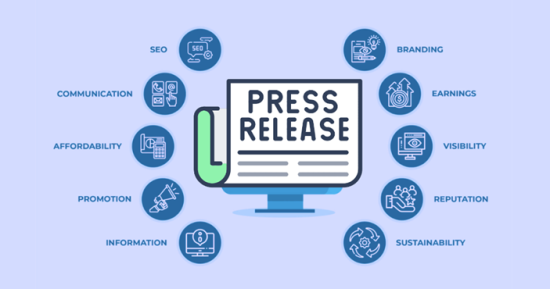
Calculating how much construction loan can I afford is crucial for financing your dream project. With 76% of U.S. homeowners relying on construction loans for new home builds or renovations, understanding your budget is essential. Key factors include your income, expenses, debt-to-income ratio, and credit score. Using a construction loan affordability calculator can help estimate the loan amount you can manage comfortably. Remember, lenders have their own criteria and limits, so your final loan offer may vary.
Construction Loans

Construction loans are specialized financing options aimed at funding new home builds or extensive renovations, distinct from regular mortgages due to their short-term nature and coverage of construction costs. They are offered by banks, credit unions, and other lenders but typically carry higher interest rates and stricter qualification criteria. Despite these challenges, construction loans provide flexibility to customize and oversee the construction process, covering expenses from land purchase to materials and labor. They enable borrowers to realize their dream home by providing essential funds and oversight throughout the building phase.
How does our construction loan work?
When it comes to financing your construction project, understanding how a construction loan payment works is essential. Our construction loan program is designed to provide you with the necessary funds to build or renovate your home in stages. Here’s a breakdown of how our construction loan works:
- Project Assessment: When you apply for a construction loan, we carefully review your project plans, budget, and timeline. This assessment helps us determine the loan amount and terms that align with your specific needs.
- Draws: Once approved, the funds are disbursed in stages, known as draws. These draws are based on the completion of specific milestones or stages of construction. As each stage progresses, we inspect the site to ensure it meets our requirements, and releases the funds accordingly.
- Interest Payments: During the construction phase, you will only be required to make interest payments on the amount that has been drawn. This allows you to manage your cash flow effectively while the construction progresses.
- Conversion to Mortgage: Once the construction is complete, our construction loan automatically converts into a traditional mortgage. At this point, you will begin making payments towards both the principal and interest.
Who Needs a Construction Loan?
Construction loans are a valuable financing option for various individuals and scenarios. If you are considering building a new home or undertaking a significant renovation project, a construction loan can provide the necessary funds to bring your vision to life. One group that can benefit from construction loans is homebuilders who want to construct speculative homes for sale. These loans allow them to secure the capital needed to build the homes and sell them for a profit. It’s a smart investment strategy that can yield substantial returns.
Why is it important to use construction loan calculators?
Construction loan calculators are essential tools for budgeting and determining affordability in construction projects. They help estimate loan amounts based on income and expenses, ensuring projects align with financial capabilities. These calculators provide transparency, empowering informed financial decisions and minimizing risks of overextension or financial difficulties during construction
How to estimate construction costs?

Estimating Construction Expenses
When undertaking a construction project, it is crucial to accurately estimate the costs involved. This estimation will guide your budgeting process and help ensure that you can complete the project within your financial means. To estimate construction costs, you need to consider various factors:
- Materials: Research and gather quotes from suppliers to determine the cost of the required materials. Include factors like quality, quantity, and any discounts or special offers.
- Labor: Analyze the labor requirements for your project and obtain quotes from contractors. Take into account the skill levels and experience needed, as well as any potential wage increases during the construction phase.
- Permits: Determine the costs associated with obtaining permits and complying with local regulations. This may involve fees for building permits, inspections, and any necessary architectural or engineering plans.
- Professional fees: If you’re working with architects, engineers, or other professionals, consider their fees for design, project management, and consulting services.
Additional Costs to Consider
Estimating construction costs goes beyond the direct expenses related to the construction process. It is essential to account for additional costs that are often overlooked. These may include:
- Land acquisition costs: If you’re purchasing land for your project, factor in the purchase price, surveys, legal fees, and any required site preparation.
- Landscaping: Consider the costs of landscaping and outdoor aesthetics, including gardens, lawns, trees, and irrigation systems.
- Furniture and appliances: If the construction project involves residential or commercial spaces, budget for furniture, fixtures, and appliances needed for the completion of those spaces.
- Moving expenses: If you’re relocating or moving offices as part of the construction project, account for moving costs, including packing, transportation, and temporary storage.
How much construction loan can I afford?
When considering a construction loan, it’s essential to determine the loan amount that aligns with your budget. Several factors come into play when calculating how much you can afford for a construction loan.
One crucial factor is your debt-to-income ratio, which is a measure of your monthly debt payments compared to your gross monthly income. A good debt-to-income ratio for a construction loan is generally around 43% or lower.
To calculate your debt-to-income ratio, add up all your monthly debt payments, including your mortgage or rent, car loans, student loans, credit card payments, and any other debt obligations. Divide that total by your gross monthly income and multiply by 100 to get the percentage.
Another consideration is your income and monthly expenses. Lenders will assess your income to determine how much you can afford to borrow for your construction loan. They will also evaluate your monthly expenses to ensure that the loan payments fit within your budget.
By analyzing your financial situation and using our construction loan affordability calculator, you can determine an estimate of how much construction loan you can afford. This will help you make informed decisions and plan your project accordingly.

Loan Terms and Interest Rates: How They Impact Affordability
Understanding Loan Terms
Loan terms play a crucial role in determining the affordability of your construction loan. When you apply for a loan, it’s important to carefully consider the duration of the loan and the repayment schedule. A shorter loan term may result in higher monthly payments but can save you money in the long run by reducing the overall interest paid over the life of the loan. On the other hand, longer loan terms can provide lower monthly payments but typically lead to higher interest costs.
Comparing Fixed vs Variable Interest Rates
Another important factor to consider is the choice between fixed and variable interest rates for your construction loan. Both options have their own advantages and considerations.
Fixed interest rates remain constant throughout the loan term, providing stability in monthly payments. This predictability can be beneficial if you prefer to have a consistent budget without any surprises. Fixed rates are particularly attractive when market interest rates are low.
Variable interest rates, on the other hand, fluctuate based on market conditions. They can start lower than fixed rates but may increase over time, leading to changes in your monthly payments. Variable rates are typically tied to an index, such as the prime rate or the London Interbank Offered Rate (LIBOR).
Prequalification vs. Preapproval for Construction Loans
When it comes to obtaining a construction loan, it’s essential to understand the difference between prequalification and preapproval. While both can give you an idea of your borrowing capacity, they serve distinct purposes in the loan process.
What Is Prequalification?
Prequalification is an initial assessment of your financial situation to determine how much you may be eligible to borrow. It provides a general estimate without conducting a thorough analysis of your creditworthiness and documentation requirements. This preliminary step allows you to gauge your affordability and potential loan amount, helping you plan your construction project accordingly.
How Preapproval Provides a More Accurate Figure
On the other hand, preapproval takes the evaluation process a step further. It involves a comprehensive examination of your financial documents, credit history, and income verification. Lenders review your financial health in detail to provide a more accurate figure of the loan amount you can qualify for. By obtaining preapproval for a construction loan, you have a clear understanding of your borrowing capacity and can confidently pursue your dream project.
Sellers and builders often prefer buyers with preapproval because it demonstrates their seriousness and ability to secure financing. Having a preapproval letter in hand can give you a competitive advantage in the real estate market, as it shows your commitment and readiness to move forward with the construction process.

Impact of Location and Property Value on Loan Amount
When applying for a construction loan, the property’s location and appraised value are critical factors influencing the loan amount. Higher property values in desirable locations can lead to larger loan approvals, facilitating more substantial construction projects. Conversely, properties in less desirable or stagnant markets may limit borrowing capacity. Lenders assess the risk associated with the property’s location, considering local market stability and economic conditions, which can affect loan terms and conditions. Understanding these factors helps borrowers plan effectively and choose financing options that align with their construction project goals and financial capabilities.
FAQs on Construction Loan
Who needs a construction loan?
Construction loans are suitable for individuals or families who want to build a new home or undertake a significant renovation project. Homebuilders who want to construct speculative homes for sale also benefit from construction loans. These loans are ideal for individuals who have a well-defined construction plan, budget, and timeline. If you plan to purchase a fixer-upper and need funds for the renovation, a construction loan can help finance the project.
How can I estimate construction costs?
When estimating construction costs, consider factors such as materials, labor, permits, and professional fees. Obtain detailed quotes from contractors and suppliers to accurately assess the expenses involved in your construction project. Factor in contingencies for unexpected costs that may arise during construction. Apart from the actual construction expenses, there are additional costs to consider, such as land acquisition costs, landscaping, furniture, appliances, and moving expenses. These costs should be included in your budget to ensure you have a comprehensive understanding of the total project expenses and avoid any surprises.
How do loan terms and interest rates impact affordability?
Loan terms refer to the duration of the loan and the repayment schedule. Shorter loan terms may result in higher monthly payments but reduce the overall interest paid over the life of the loan. Longer loan terms can provide lower monthly payments but result in higher interest costs. When choosing between fixed and variable interest rates for your construction loan, consider your risk tolerance and financial goals. Fixed interest rates remain constant throughout the loan term, providing stability in monthly payments. Variable interest rates fluctuate based on market conditions, potentially resulting in changes to monthly payments.








